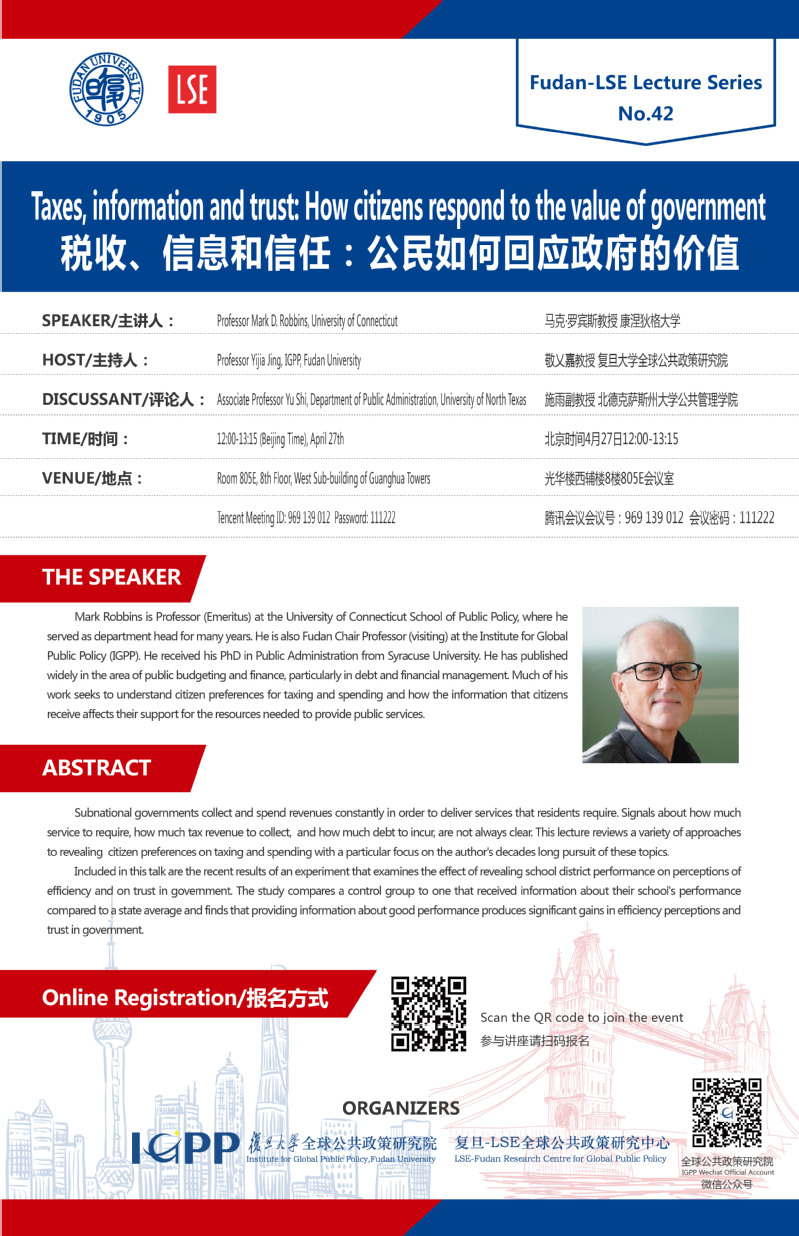
Fudan-LSE Lecture Series No.42
Title:
Taxes, information and trust: How citizens respond to the value of government
Speaker:
Professor Mark D. Robbins, University of Connecticut
Host:
Professor Yijia Jing, IGPP, Fudan University
Discussant:
Associate Professor Yu Shi, Department of Public Administration, University of North Texas
Time:
12:00-13:15 (Beijing Time), April 27th
Venue:
Room 805E, 8th Floor, West Sub-building of Guanghua Towers
Tencent Meeting ID: 969 139 012 Password: 111222
Please click the link to sign up
The Speaker:

Mark Robbins is Professor (Emeritus) at the University of Connecticut School of Public Policy, where he served as department head for many years. He is also Fudan Chair Professor (visiting) at the Institute for Global Public Policy (IGPP). He received his PhD in Public Administration from Syracuse University. He has published widely in the area of public budgeting and finance, particularly in debt and financial management. Much of his work seeks to understand citizen preferences for taxing and spending and how the information that citizens receive affects their support for the resources needed to provide public services.
Subnational governments collect and spend revenues constantly in order to deliver services that residents require. Signals about how much service to require, how much tax revenue to collect, and how much debt to incur, are not always clear. This lecture reviews a variety of approaches to revealing citizen preferences on taxing and spending with a particular focus on the author’s decades long pursuit of these topics.
Included in this talk are the recent results of an experiment that examines the effect of revealing school district performance on perceptions of efficiency and on trust in government. The study compares a control group to one that received information about their school’s performance compared to a state average and finds that providing information about good performance produces significant gains in efficiency perceptions and trust in government.





